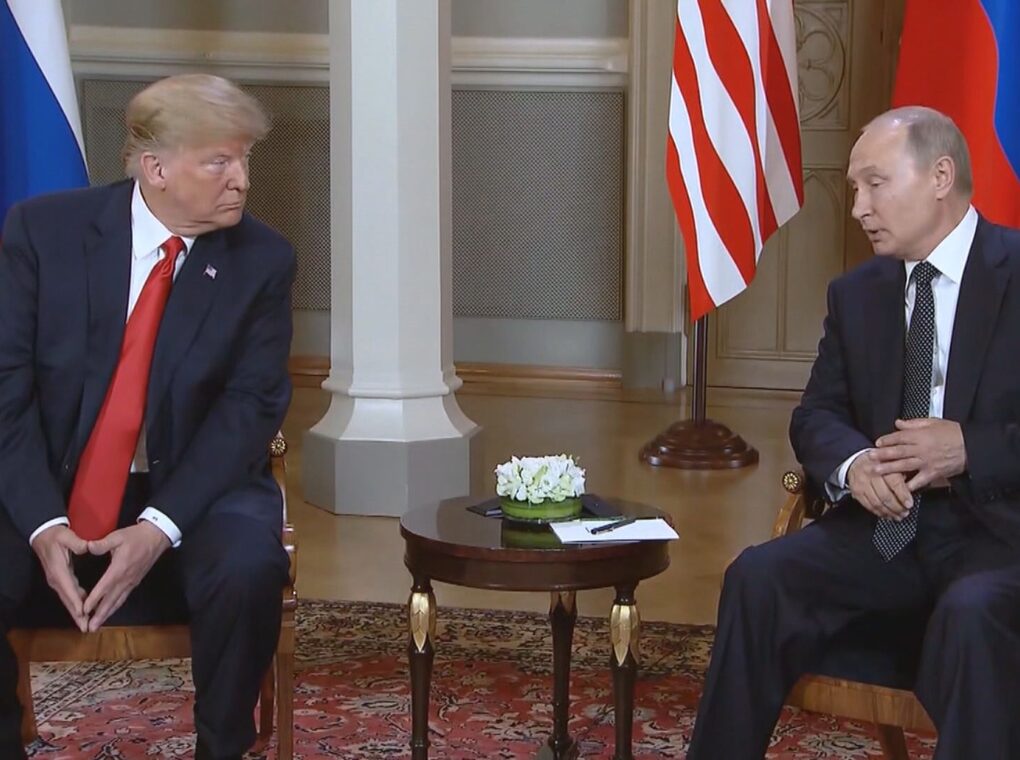The trajectory of the war in Ukraine remains uncertain, but analysts increasingly warn that any settlement involving territorial concessions to Moscow could embolden Russian President Vladimir Putin to expand his ambitions elsewhere in Europe and its neighborhood.
A “Peace” That Could Be Temporary
Following his meeting with U.S. President Donald Trump in Alaska, Putin reiterated his call to address the “root causes” of the Ukraine conflict. For Moscow, this phrase extends far beyond battlefield realities and includes longstanding grievances over Russia’s diminished status since the Soviet collapse. In practical terms, it has often meant demands such as Ukraine renouncing NATO membership, accepting limits on its armed forces, and tolerating a pro-Russian government in Kyiv.
Experts suggest that any peace settlement framed as a Russian victory could serve as a springboard for renewed aggression. “Putin has placed Russia on a war economy footing,” said Dr. Neil Melvin of the Royal United Services Institute. “Even if hostilities pause, he will be looking for the next opportunity to use force.”
Moldova: A Vulnerable Neighbor
Moldova, a small country of 2.5 million people situated between Ukraine and Romania, is seen as especially vulnerable. While not a NATO member, Moldova is geopolitically exposed due to the presence of Russian troops in the separatist region of Transnistria. Around 1,500 Russian soldiers are already stationed there, and Moldovan officials allege Moscow has plans to expand its military footprint further.
Analysts argue that if Russia were to solidify its control in southern Ukraine, particularly around Odesa, it could create a land corridor to Moldova. However, other experts caution that while destabilisation and election interference will continue, a large-scale invasion may not be imminent, given Russia’s commitments elsewhere.
Hybrid Pressure on the Baltic States
Beyond Moldova, Russia’s ambitions could extend to NATO’s eastern flank. Estonia, Latvia, and Lithuania remain acutely aware of their proximity to Moscow. Yet, given their NATO membership, a direct invasion appears unlikely. Instead, experts expect a continuation of hybrid tactics: cyberattacks, disinformation campaigns, sabotage, and limited provocations that test NATO’s Article 5 security guarantees.
“Putin could engineer an incident, such as a drone strike or border clash, that blurs responsibility,” said Katia Glod of the New Eurasian Strategies Centre. “This would not only challenge NATO’s resolve but could also expose divisions within the alliance between frontline states and those farther west.”
The Caucasus: A Strategic Battleground
In the South Caucasus, Russia’s influence has already come under strain. The recent U.S.-brokered peace agreement between Armenia and Azerbaijan has weakened Moscow’s traditional role as mediator in the Nagorno-Karabakh conflict. With military bases in Armenia and historic claims of regional influence, Russia is unlikely to retreat quietly.
“While direct military intervention is not inevitable, Moscow will almost certainly seek to pressure both Yerevan and Baku to maintain its presence and limit Western influence,” Dr. Melvin noted.
What Comes Next?
Much will depend on the terms of any eventual settlement in Ukraine. If the deal leaves Russia with substantial territorial gains and no binding Western security guarantees for Kyiv, the Kremlin may view it as a validation of its strategy. That could set the stage for renewed military build-up and fresh challenges to Europe’s security order.
At the same time, escalation beyond Ukraine is not risk-free for Moscow. A confrontation with NATO in the Baltics would carry enormous risks, while deeper entanglement in the Caucasus could overstretch Russian resources already strained by sanctions and war.
The outcome, then, hinges not only on Moscow’s ambitions but also on the willingness of the United States and its European allies to provide credible deterrence. As one analyst put it: without robust guarantees, any “peace” in Ukraine may prove to be only an intermission in a longer cycle of confrontation.
